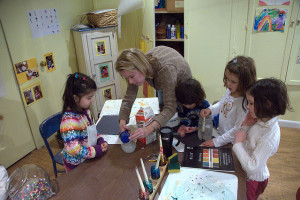
If you’re unhappy with your current school, do you know why? Do you have an idea about what would make you happier about the situation?
Problem: Your district’s application period for special programs and changing schools is in full swing. Maybe you’re pleased with how your child is performing at their current school and just want to see what else is possible or you’re unhappy and want to jump ship, the clock is ticking for you to make a decision.
Solution: Although many parents would approach this situation with a gut-feeling attitude, there actually are some systematic things you can think about during the school exploration process. They include:
- The child’s (generalized) opinion
- Your child’s future plans and track
- Social relationships at the current school
- If unhappy, willingness of teachers and administrators to work with you
The child’s (generalized) opinion
Although you might view this as strictly a parenting decision, even younger students should have an opinion on their school. The trick is not to get into specifics unless you truly think the child is mature enough to weigh the options for themselves.
To do this, just ask the child broad questions, such as “What do you think of your school this year?” and “What would be some things you would change about your school if you could?” These can lead insight into how they are thinking without framing an actual move.
Your child’s plans and track
You need to be honest about your child’s abilities and where you see them going after high school. Older students might already have an idea about what they want to be after school is over. Not every kid can go Ivy League, but if there is that potential then you need to weigh that with the school that makes that more likely. Other students might struggle getting through high school, in which case you might want to consider vocational options.
Social relationships at the current school
Not being very social at the current school isn’t in itself a reason for changing locations. Some kids just like having a manageable social life. But if there are serious problems with a child’s friends (or lack of them), that needs to be considered in any potential move. If there are even more serious issues, like bullying, make sure you’ve exhausted all of your options with administration. You’d be surprised at what the laws provide these days.
If unhappy, willingness of teachers and administrators to work with you
If you’re unhappy with your current school, do you know why? Do you have an idea about what would make you happier about the situation? If you have answers to both of those questions, have you brought those concerns to your child’s teacher or administration? How receptive were they? If they told you there is nothing they can do, that might truly be the case (oversight is only growing in education). They might not have a solution at the other school either.
photo credit: <a href=”https://www.flickr.com/photos/wellspringschool/4388329924/”>WellspringCS</a> via <a href=”http://photopin.com”>photopin</a> <a href=”http://creativecommons.org/licenses/by/2.0/”>cc</a>



